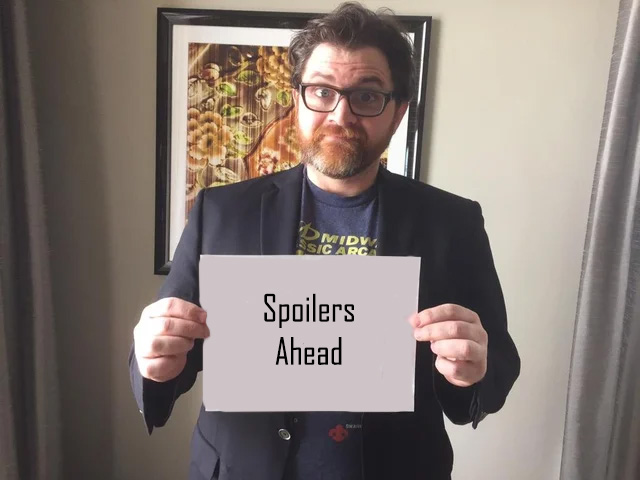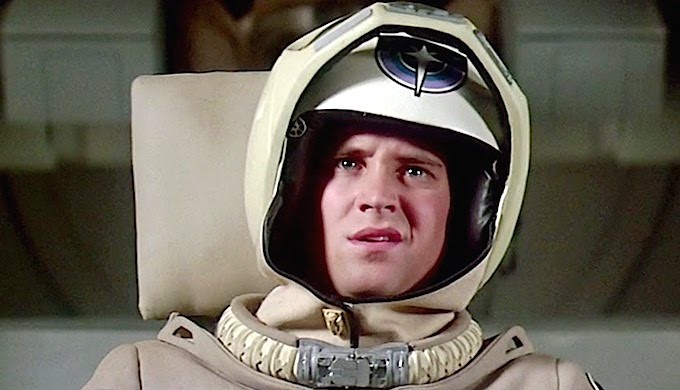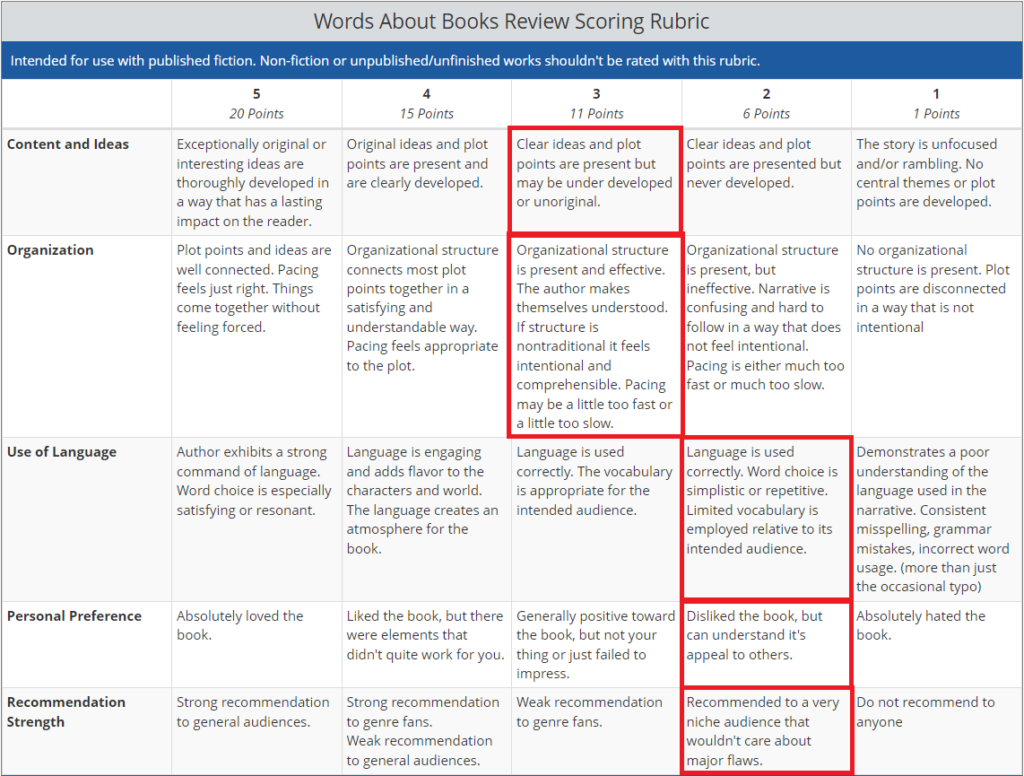Ben Read Armada and You Won’t Believe What Happened Next…
I didn’t hate it. That’s it. That’s the click bait.
But since you’re here, I did happen to notice something weird when I looked at other reviews of the book. Turns out that people who liked Ready Player One are not big fans of Armada.
Believe me when I say I was ready to love this book. Ready Player One was so great! And this was about video games and alien invasions! I jumped in to Armada ready to be caught by an awesome net..
.. and instead fell flat on my face. On concrete. And then a piano fell on me.
Goodreads Review, 2-stars
…
I’ve not given up on Ernest Cline – Ready Player One is a super fantastic and fun novel, and I feel like Ernest Cline is writing interesting sci-fi for our contemporary times, I just hope that whatever he does next is better plotted and not rushed <3
Okay, let’s get this out of the way: If you’re looking to recreate the singular reading experience you had with Ready Player One, to recapture that same magical feeling of wonder and awesomeness, you’re going to be disappointed with this book. Just, straight up.
Goodreads Review, 4-stars
I was really excited to read Armada since I read some months ago Ready Player One and I enjoyed A LOT that other book.
Goodreads Review, 3-stars
So, reading the next novel by Ernest Cline was a obvious decision.
I was aware of the basic premise, and I really hoped to read something fresh and original with the same sense of witty and humor found on Ready Player One, but while I can’t deny that Armada contains witty and humor, I didn’t find it fresh or original.
They say that many author’s first novel is their greatest; pulling as it does on so many personal threads and bits of real exposure and exposition. RP1 is that book. The reason being that all of the geek references are mainly real and serve the story, itself being a quasi- Willy Wonka type affair (not a spoiler, I think everyone knows this by now). Whereas Armada draws upon the similar geek genre of RPG and console war and shoot em up games but with made-up references in the main and with a messed up confusing and frankly way-too obvious story as it pans out.
Amazon Review, 2-stars
Not as good as Ready Player One
Amazon Review, 4-stars
I’m cherry picking a bit. There are obviously many unconditionally positive reviews, and there are many negative reviews that do not mention how much they liked Ready Player One. I understand both the very positive and very negative reviews. What interests me here, are the middling reviews that mention how Armada fails to capture the “magical” feeling of reading Ready Player One.
When we planned the summer episodes of Words About Books, we initially planned to do 4 episodes on Ernest Cline books. There were going to be 3-parts on Ready Player Two, and in addition to that, we thought it would be fun to have only myself read Armada and then attempt to describe the book to Nate. Our audience seems to enjoy when I struggle to summarize the plots of cheesy sci-fi books (see, Thrawn).
Nate decided that he didn’t want to talk about Ernest Cline anymore, and I agreed. While it is entertaining to make fun of a bad book, we were very negative and that isn’t a headspace that we want to inhabit for too long. I abandoned my plans to read Armada until another podcaster mentioned to me that there was no way that Ready Player Two could be worse than Armada.
I found that intriguing because I couldn’t imagine what a worse book by Ernest Cline would even look like. I took it upon myself, in my spare time, to read Armada. Full disclosure, I listened to the audiobook while jogging every day. Wil Wheaton’s performance was painful, but I think it actually improved my running. We’re not hear to talk about Wil Wheaton’s failures as an actor, though.
We’re here to talk about how Armada may actually be the best thing Ernest Cline has ever written. It’s not great, don’t get me wrong. I’m not even sure I’d call it good. But it is ok. At the very least, it’s not an absolute mess. It’s not a blatant cash grab, or adaptation bait. It dodges the problems of Ready Player One’s weird morality by simply not making any kind of moral statement whatsoever.
There are spoilers for Armada and Ready Player One ahead. If that is something you would rather not read, then please stop here.

Here is a quick summary of Armada for those who have not read the book. A high school senior named Zack Lightman looks out of his classroom window one day to see an alien spaceship in the sky. This is not just any alien spaceship, though. This is a spaceship from his favorite video game, Armada. Zack Lightman is the 6th best Armada player in the world. Zack also grew up without his father, who died in an explosion at the water treatment plant where he worked when Zack was still an infant. These two things are connected.
Growing up without a father was not easy on Zack and his mother. Zack’s mother never found love again, and Zack suffers from psychological and emotional instability, particularly when it comes to matters concerning his father. Zack once put another child in the hospital, for a week, when that child made fun of the way his father died.
As you might expect from the variety of sci-fi properties that are mentioned frequently throughout the book, such as Ender’s Game and The Last Starfighter, Zack’s favorite video game is actually a combat training simulation for a secret, real life battle against aliens. Zack is recruited into the Earth Defense Alliance to fight in the final, desperate battle against the aliens. After joining, Zack discovers that his father is not dead. The death was a cover-up. Zack’s father was actually recruited into the EDA almost 18-years ago and has been fighting the aliens this whole time, and his father has developed a theory that the war may not actually be what it seems.
Zack’s father is correct. The war is a test, and the only way to win the game is not-to-play. Zack will have to forgive his father, and trust him against all evidence to the contrary in order to save the human race. By putting their faith in one another, father and son are able to save the world. This time Zack’s father dies for real though, sacrificing himself to buy Zack the time he needs to stop the Earth Defense Force from launching their final attack on the aliens.

In many ways I think that Armada was a step in the right direction for Ernest Cline. Zack Lightman is a more complex protagonist than Wade. The emotional core of the book is the relationship between father and son. The ending, intentionally unsatisfying, leaves the audience a lot of room to think about the morality of the alien’s test. Zack ultimately chooses to continue working on the alien/human alliance, despite harboring a deep resentment for the aliens because they killed his father.
Armada is far from a perfect book. I agree with many of the reviewers who have identified flaws. Where I disagree with many reviewers is that Ready Player One lacked these same flaws. One review called Ready Player One a “super fantastic and fun novel” then derided Armada for having: boring characters, an annoying main character, deus ex machina ALL OVER THE PLACE, anti-climaxes, an over saturation of pop culture references, wasted potential, and bad editing.
I’m just going to list a few unrelated quotes for from Ready Player One.
Daito and Shoto both smiled. “It was the same with us,” Daito said. “My brother and I have been playing Joust against one another for years, because the game was mentioned in Anorak’s Almanac.”
Cline, Ernest. Ready Player One (p. 155). Random House Publishing Group. Kindle Edition.
“Great,” Art3mis said, throwing up her hands. “Good for you guys. You were all prepared in advance. I’m so happy for you. Bravo.” She gave us all a sarcastic golf clap, which made everyone laugh. “Now, can we adjourn the Mutual Admiration Society and get back to the topic at hand?”
Fascinating!
I wish someone had just said: “Here’s the deal, Wade. You’re something called a ‘human being.’ That’s a really smart kind of animal. Like every other animal on this planet, we’re descended from a single-celled organism that lived millions of years ago. This happened by a process called evolution, and you’ll learn more about it later. But trust me, that’s really how we all got here. There’s proof of it everywhere, buried in the rocks. That story you heard? About how we were all created by a super-powerful dude named God who lives up in the sky? Total bullshit. The whole God thing is actually an ancient fairy tale that people have been telling one another for thousands of years. We made it all up. Like Santa Claus and the Easter Bunny. “Oh, and by the way … there’s no Santa Claus or Easter Bunny. Also bullshit. Sorry, kid. Deal with it.
Cline, Ernest. Ready Player One (pp. 16-17). Random House Publishing Group. Kindle Edition.
Now this is a main character I want to hang out with!
When a list of the games found in Halliday’s bedroom had first appeared online, I’d made sure to download and master every single one of them, so I’d already solved Dungeons of Daggorath, about two years earlier.
Cline, Ernest. Ready Player One (p. 105). Random House Publishing Group. Kindle Edition.
Such tension! Much climax!
Her newest blog post was titled “The John Hughes Blues,” and it was an in-depth treatise on her six favorite John Hughes teen movies, which she divided into two separate trilogies: The “Dorky Girl Fantasies” trilogy (Sixteen Candles, Pretty in Pink, and Some Kind of Wonderful) and the “Dorky Boy Fantasies” trilogy (The Breakfast Club, Weird Science, and Ferris Bueller’s Day Off).
Cline, Ernest. Ready Player One (pp. 35-36). Random House Publishing Group. Kindle Edition.
Do I even need to argue this one?
I’m not going to relitigate everything that is wrong with Ready Player One. Words About Books has beaten that dead horse into an unrecognizable pile of mush. If you remain unconvinced that these criticisms are applicable to Ready Player One as well as Armada, please consider checking out the 8+ hours of my life spent arguing that point.
The mystery is not whether both flawed books, but why so many people were bothered by these flaws in Armada and not bothered by them in Ready Player One. I’ve spoken with a few people who enjoyed both books and were active in the fanbase at the time they came out. The explanation they gave me is that the story and setting were just too different from Ready Player One, and people don’t like things that are different.
This explanation needs a little unpacking. Plot-wise, Armada and Ready Player One are similar. Both novels are about young adult gamers who need to save their world using their gaming skills. Both novels feature a young adult male protagonist with an absent father. The protagonist in both novels deals with mental health issues, and both are using their video games to escape from the real world.
The tone and setting of each story is very different. Ready Player One is a love letter to 80’s pop culture, set in a dystopian future, where a sandbox VR game called the Oasis is the main hub for most human social and economic activity. In spite of the outside world crumbling around the characters the story is mostly an irreverent adventure. It features some very dark asides, but I think most fans remember it as an adventure story more than a dark character study of a sociopath.
Armada by contrast is a love letter to spaceship battle and first encounter science fiction. It is set in the present day. This hero embarks on his journey not with his friends, but with his estranged father. The technology is not as forward-looking. It is based on what is plausible today. This, coupled with a bitter-sweet ending that is more bitter than it is sweet, creates a recipe for a story that readers aren’t as eager to insert themselves into.
In addition to the tone set by the use of technology in each book, it’s worth examining the technologies themselves. The Oasis is a dream machine in which all things become possible. People live and work in fantasy settings tailor made to suit them. They inhabit idealized avatars. They can travel to any time, place, or fictional setting. Armada is a flight simulator. It’s a very good flight simulator, but it’s not an MMORPG, it’s not a place that the user can live in. If the reader’s personal fantasy isn’t engaging in WW2-style dogfights in space then the technology of Armada may fail to impress.
There is also the quest that each hero has to go on. Though Armada arguably has higher stakes than Ready Player One, Wade’s adventure feels much larger than Zack’s. In The Last Starfighter, which Armada draws much of its inspiration from, the protagonist joins with an alliance of numerous different aliens to fight a charismatic and strange enemy. In Armada, Zack Lightman faces wave after wave of faceless drones. He doesn’t make any contact with an alien intelligence until the very end of the book.
I can think of one additional reason that people may enjoy Ready Player One more than Armada, and that is that Ready Player One received a decent film adaptation. The film was able to fix many of the problems of the book. It paints the property in probably the best light it can be painted in. It is possible that some readers who watched the film between reading Ready Player One and reading Armada have been influenced by its reimagining of the material.
For me, it is a challenge to relate to people who are charmed by the world and the technology of Ready Player One. I don’t care for 80’s nostalgia. I was born in 1988. I have no memory of the 80’s. I also have a complicated relationship with virtual reality. I’m a programmer by trade. I have a bachelor’s degree in computer science. I minored in mathematics. I have dabbled in VR/AR software development.
I mention my background so that when I tell you that I have been consistently underwhelmed by virtual reality, you know that I am not just a luddite. I own a VR headset. I will likely own more in the future. VR still feels like a gimmick to me. I think it’s a technology worth developing further, but even the VR tech of Ready Player One with its haptic suits and it’s Roblox style world building just sounds like something I would play for a week and then never look at again.
I am roughly as interested in the gameplay of The Oasis as I am in the gameplay of Armada, which is to say, not very. As result, what I focused on was the world building and the character development. I was not distracted for even one moment by the bells and whistles of the video games being described to me. In Ready Player One, I notice all the inconsistencies of the dystopia. In Armada, he didn’t get as ambitious with his world building. He set this story in our modern day civilization, and though Ernest Cline doesn’t seem to realize quite how good telescopes have gotten in the last 400-years, there aren’t as many egregious errors in logic.
Zack’s relationship with his father is more interesting than Wade’s relationship with his friends. Even Zack’s relationship with his mother is more interesting than Wade’s relationship with Shoto and Daito. There are many severely underdeveloped side characters in Armada that Cline attempts to make us care about, and that does fall flat, but I would argue the same is true of Ready Player One.
Both stories feature a cringe inducing romance. In Armada, at least, all parties seem to want the romance where as in Ready Player One, Wade just stalks and harasses Artemis until she caves in. I don’t know that Armada is empirically better than Ready Player One, but I think they’re of more similar quality than many fans are willing to give Armada credit for.
Even though it doesn’t work for me, Ernest Cline obviously stumbled onto something with Ready Player One and The Oasis. In Armada, he showed a little emotional vulnerability and wrote a story that featured flawed human beings trying to understand one another. Both aspects of his writing need some work, but if he could find a way to combine the fantasy aspects of Ready Player One with the character work he displayed in Armada, then I think we’d have ourselves a book that I may be able to give a positive score.
I’m not ready to declare Armada an underrated gem, but I think it deserves better than it got. Below is my final score in accordance with the Words About Books rubric…

Final Score: 40/100.